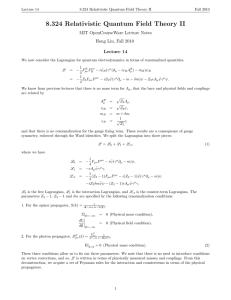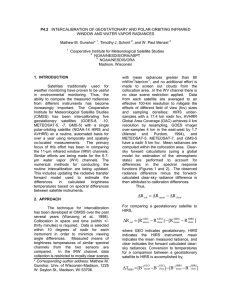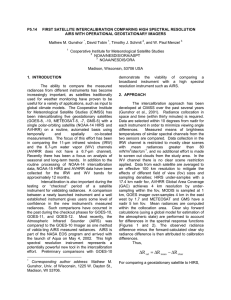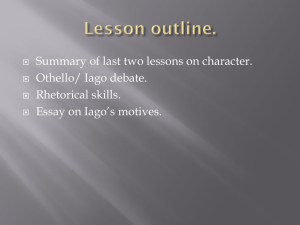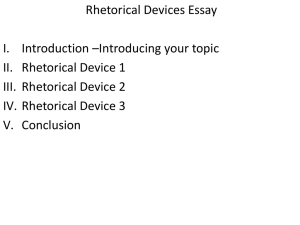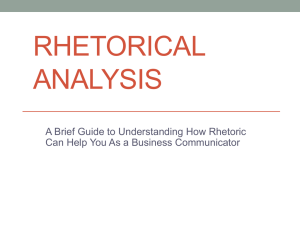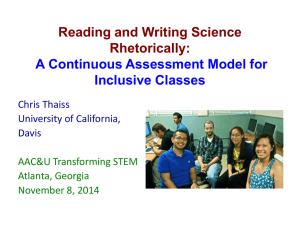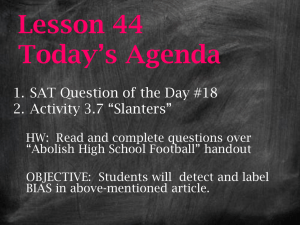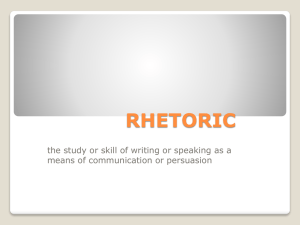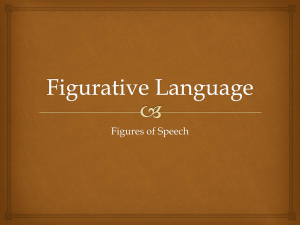Navigating Change IRW
advertisement
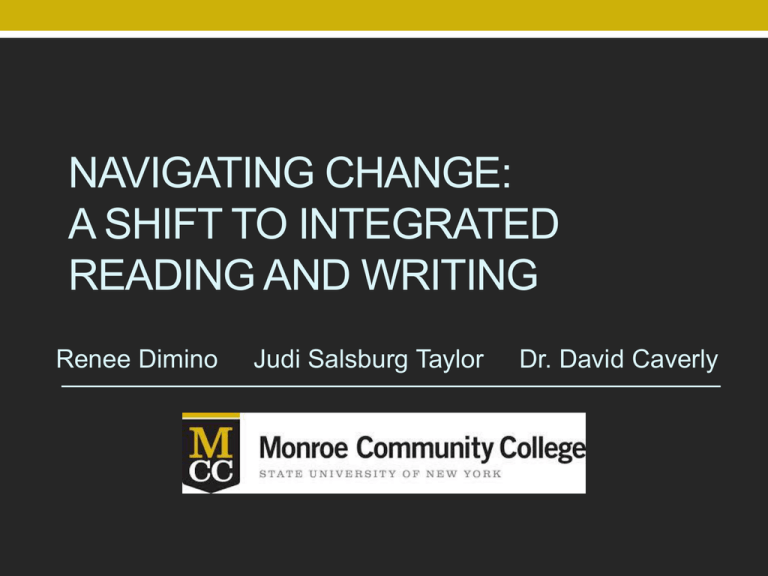
NAVIGATING CHANGE: A SHIFT TO INTEGRATED READING AND WRITING Renee Dimino Judi Salsburg Taylor Dr. David Caverly WHAT DO YOU KNOW ABOUT IRW? HOW MANY HERE ARE USING IRW CURRENTLY? HOW MANY PLAN TO IMPLEMENT IRW? Why IRW at Monroe Community College? • Push to redesign all developmental education curriculum • Mandate reading—a decade-long effort • Desire to accelerate through developmental education • IRW is not mandated in New York State, but seemed a good fit for our institution Monroe Community College Rochester, NY • Population 210,358 (2013) • 5th poorest city in the nation • Highest murder rates in NY, 4th in U.S. • Failing city school district (43% graduated in 2014) • City redefining a once thriving manufacturing sector Monroe Community College • Multi Campus Institution • Total number of students (34,593 Fall, 2013) • Percentage of students who enroll in a TRS course 33% Instructional Design of Developmental Reading and Writing Courses Before IRW • Reading and writing taught as discrete disciplines and consequently classes • Theoretical emphasis left to the individual instructor, resulting in a dominant behaviorist approach After IRW • Foundations in theory and research • Grubb, et al. • Tierney and Pearson • Dewey and Vygotsky • Caverly • Sugie Goen-Salter • Collins, et al. • JoAnn Carter- Wells • Emphasis on a constructivist approach IRW at MCC: A Developing Model Based on Dr. Sugie Goen-Salter’s Six Principles 1. Schema Activation 2. Annotation 3. Self Reflection 4. Rhetorical Reading 5. Rhetorical Writing 6. Mining the text IRW at MCC: A Developing Model • Metacognition is at the core • Affective needs are addressed • Reading/Consuming • Rhetorical Reading • Strategies: PLAN, KWL+, Annotation • Composing meaning from text • Schema Activation • connecting the affective to reading strategies IRW at MCC: Key Components • Mining the text • What is the author doing to me now? • Writing/Producing • Rhetorical Writing, • Composing meaning • Collaboration • Constructivism • Students • Faculty • Multi-modal Sample: First Few Weeks Day 1: • PowerPoint as students enter – schema activation • Syllabus - Reading Strategy 1: Shadow KWL+ • Reflection Day 2: • Assessment Day 3: • Checklists • “Ordeal by Cheque” • Exit Slip Sample: First Few Weeks Day 4: • Reading Strategy 2: Begin PLAN • Exit Slip Day 5: • Text Ordination • Studio 1 Patterns of Development Day 6: • Practice P & L on considerate text • Practice P & L on This I Believe essay Sample: Few Weeks Day 7: • Reading Strategy 3 – Rhetorical Reading • Reading Strategy 4 – Story Board • PLA in PLAN Day 8: • Repeat with Student Choice Essays • Exit Slip Day 9: • Assign First Project • Exit Slip Challenges of Implementing IRW • Professional development • Adjuncts teach over 80% of courses • Teaching Materials • Physical space conducive to our instruction • As you know, typical concerns in developmental education • Poverty • Affective issues To address some of our challenges . . . Moving the Needle: A Generational Model of Professional Development Summer 2013, Fall 2013, Spring 2014, Fall 2014 Dr. David Caverly Consultant Judi Salsburg Taylor Renee Dimino 1st Generation 1st Generation Meghan Glaser 2nd Richard Duff 3rd Generation Diane Clements Gena Merliss 2nd Generation Matthew Kotula 3rd Generation 2nd Generation Kathleen Allen 3rd Generation Matt Fox 2nd Generation Generation Robert Baker 3rd Generation 3rd Generation Frank Connell 3rd Generation 3rd Generation Lisa Metzger 3rd Generation Impact on Students Using propensity score matching Fall 2013 to Spring 2014 C or better pass rates TRS 200 No Treatment (PSM) 51.9% TRS 200 Received Treatment (PSM) 56.7% Impact on Students • I learned how to annotate each of the writer’s essays and to use the annotation in a reading strategy to help me analyze the thesis and their support. Having this conversation with the writer helped me have conversation with my writing. I was able to create support for my thesis and make it easier for the reader to understand.” • “Having this conversation with myself helped me with my support, to see if it all ties back to the thesis statement. Now it is easier for me to look a the support of the writer and figure out their thesis statement. I can also figure out the intended audience and how they relate to the group. What examples he or she uses so that the reader understands their points.” Impact on Faculty • Professional benefit: o exposure to research o collaborative work with colleagues • Personally transformative: o Collins, et. al. Cognitive Apprenticeship to make reading/writing processes explicit o permanent shift in teaching • Truer impact: o stronger department through multi-generational model o students “own” their learning o metacognitive awareness: “implementing a growth mindset in life” and “utilizing skills not only in TRS 200 class, but in each and every course into the future” Reflections on this Presentation • IRW and your institution • Key challenges of IRW in your institution • Supporting faculty Contact Information Dr. David Caverly dcaverly@txstate.edu Judi Salsburg Taylor jsalsburg@monroecc.edu Renee Dimino rdimino@monroecc.edu
